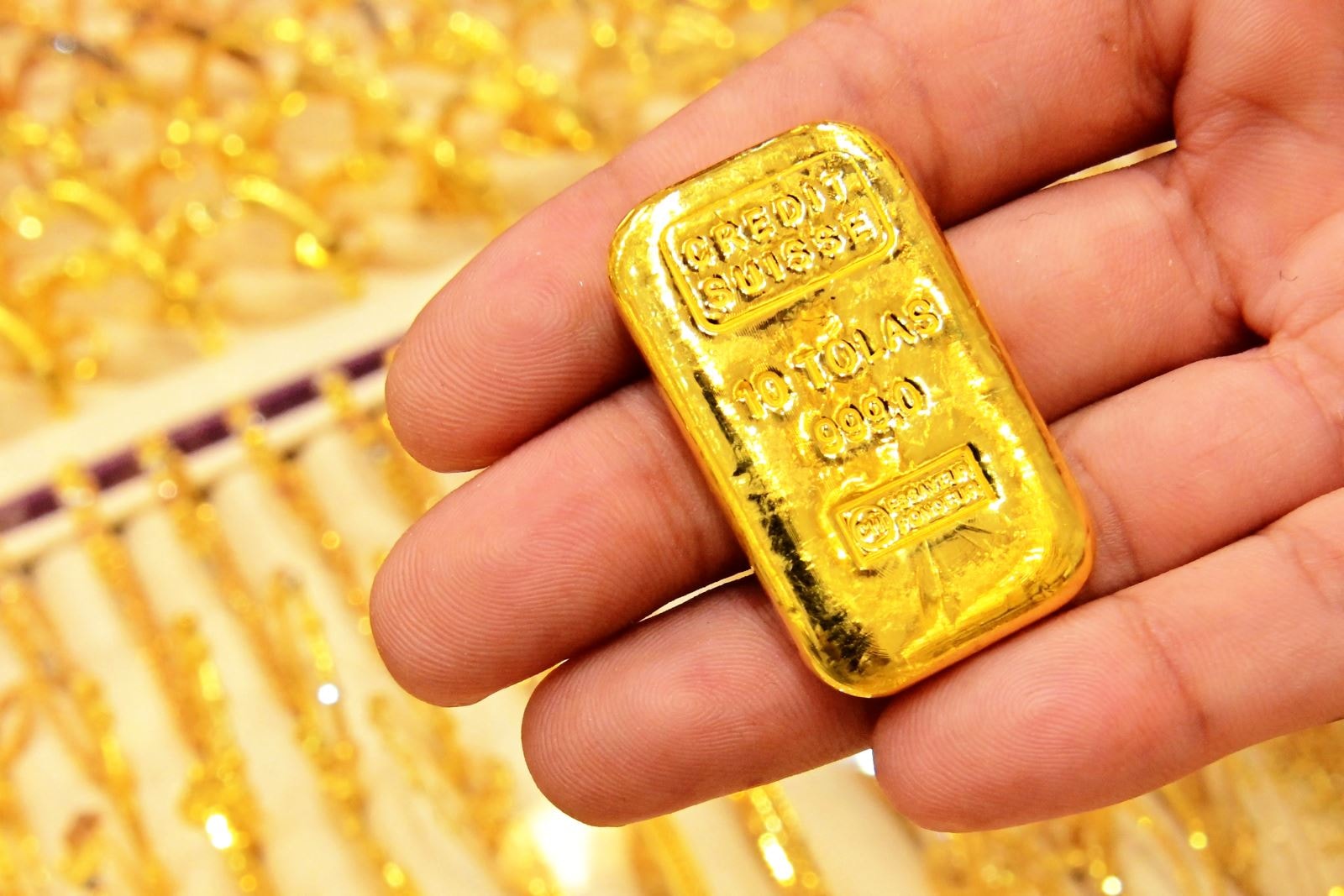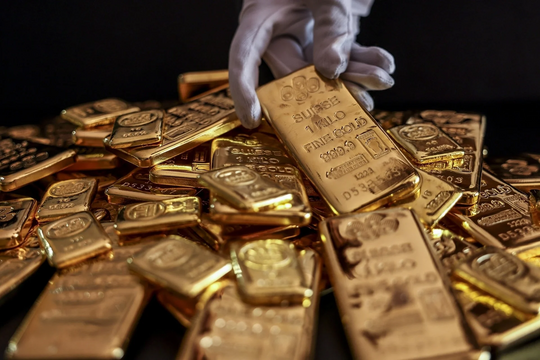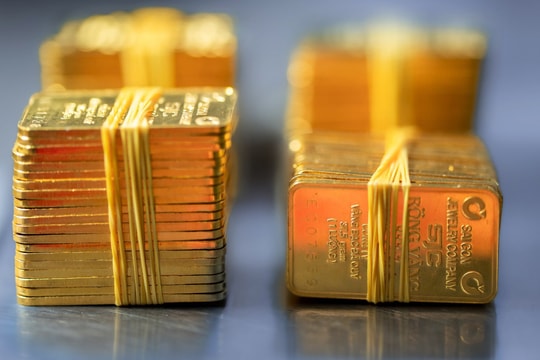World gold prices recover to $2,900 thanks to weaker USD and tariff concerns
World gold prices recovered from the sharpest drop in two months, returning to the important level of 2,900 USD/ounce, as demand for safe-haven assets such as gold was supported by concerns about an impending trade war.
In this morning's trading session, the price of gold for April delivery in the US reached 2,911 USD/ounce, up 0.4% in the context of rather gloomy trading due to the holiday.
The gains came even as the 14-day relative strength index (RSI) – a measure of the speed and magnitude of price movements – showed gold had reached overbought levels in recent sessions, according to Bloomberg.
Meanwhile, the US dollar hovered near a two-month low, making gold cheaper for buyers using other currencies.

“Gold continues to benefit from investors seeking safe havens amid concerns about tariffs and trade wars,” said Giovanni Staunovo, an analyst at UBS. “We continue to expect gold prices to rise, targeting $3,000, supported by central bank demand.”
Last Friday, US President Donald Trump renewed his tariff threat, announcing that tariffs on cars would be imposed starting April 2. This is the latest in a series of trade measures he has introduced since returning to office.
Developments related to the Ukraine war negotiations were also in focus. US Secretary of State Marco Rubio said on Sunday that Kyiv and Europe would participate in any substantive talks aimed at ending the Russia-Ukraine war.
“We remain closely monitoring the possibility that central bank demand for gold could decline if a Russia-Ukraine peace deal is signed,” Morgan Stanley said in a report.
Traders are also analyzing the latest U.S. economic data to predict the Federal Reserve's moves. A report on Friday showed retail sales fell the most in nearly two years, leading many to believe the Fed could cut interest rates before September.
Fund managers reduced their bets on rising gold prices to a four-week low as of February 11, according to the latest report from the Commodity Futures Trading Commission (CFTC).





